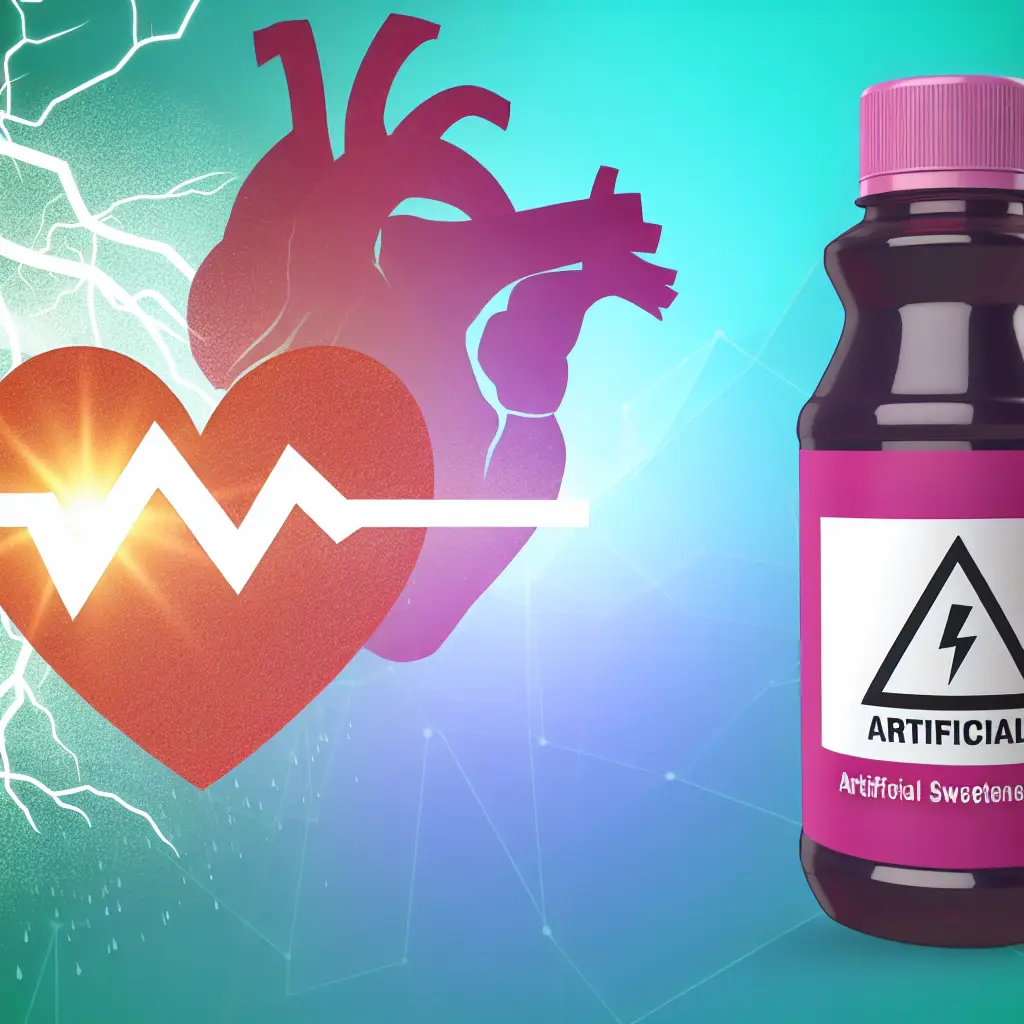
This Artificial Sweetener Could Increase Risk of Heart Attack, Stroke
Artificial Sweetener Linked to heart ,In recent years, artificial sweeteners have become a popular alternative for those looking to cut down on sugar intake. However, recent studies have raised concerns about the potential health risks associated with their consumption. One such risk that stands out is the potential increase in the likelihood of heart attack and stroke. This revelation has significant implications for public health and warrants a closer look.
Understanding Artificial Sweeteners
What Are Artificial Sweeteners?
Artificial sweeteners are synthetic sugar substitutes that provide a sweet taste without the calories of natural sugar. They are commonly found in foods and drinks marketed as “diet” or “sugar-free.” Some of the most popular artificial sweeteners include:
- Aspartame: Found in products like diet sodas and sugar-free gum.
- Saccharin: Often used in tabletop sweeteners and some diet drinks.
- Sucralose: Known commercially as Splenda, commonly used in baked goods and beverages.
- Stevia: A natural sweetener derived from the leaves of the Stevia plant, often used in health-conscious products.
Why Do People Use Artificial Sweeteners?
There are several reasons people turn to artificial sweeteners:
- Calorie Reduction: They provide sweetness without additional calories, aiding weight loss efforts.
- Low Blood Sugar Impact: Beneficial for diabetics as they generally do not raise blood sugar levels.
- Dental Health: Unlike sugar, they do not contribute to tooth decay.
The Alarming Findings: Risks of Heart Attack and Stroke
Recent Studies Shed Light on Health Risks
Recent studies have indicated that the consumption of certain artificial sweeteners may be linked to an increased risk of heart attacks and strokes. For instance, a study published in the Journal of the American Medical Association (JAMA) found that individuals who consumed high amounts of artificial sweeteners had a higher incidence of cardiovascular diseases compared to those who did not.
How Artificial Sweeteners Affect Cardiovascular Health
Research suggests that artificial sweeteners may negatively impact cardiovascular health in several ways:
- Altered Metabolic Processes: They can disrupt the body’s ability to metabolize glucose, potentially leading to insulin resistance and metabolic syndrome, both of which are risk factors for cardiovascular disease.
- Negative Impact on Gut Microbiota: Emerging evidence shows that artificial sweeteners can alter the composition of gut bacteria, which plays a critical role in overall health and disease prevention.
- Increased Blood Pressure: Some studies suggest a possible link between artificial sweetener consumption and elevated blood pressure, adding stress to the cardiovascular system.
Recommendations for Consumers
Moderation is Key
While the findings are concerning, it’s important to note that moderation is crucial. Consuming artificial sweeteners in small amounts may not pose significant risks. However, excessive intake could lead to adverse health effects.
Opt for Natural Alternatives
For those looking to reduce their reliance on artificial sweeteners, here are some healthier alternatives:
- Honey: A natural sweetener with antibacterial properties.
- Maple Syrup: Contains antioxidants and minerals like calcium and zinc.
- Fruit Purees: Excellent for baking and can add a natural sweetness without processed sugar.
- Coconut Sugar: Lower glycemic index compared to regular sugar.
Be Informed and Read Labels
Consumers should become more aware of the ingredients in their food. Reading labels can help identify products containing artificial sweeteners. Knowledge is power, and informed decisions can lead to better health outcomes.
Conclusion
The potential risk of heart attack and stroke associated with artificial sweeteners is an alarming finding that necessitates further investigation and awareness. While they offer benefits like calorie reduction and blood sugar control, the health risks cannot be ignored. Moderation and a preference for natural alternatives can help mitigate these risks. As we continue to learn more about the long-term effects of artificial sweeteners, it is crucial for consumers to stay informed and make health-conscious decisions.
For more updates and information on healthy eating habits, stay tuned to our blog!









